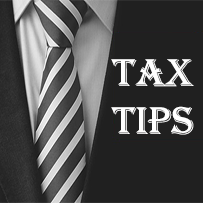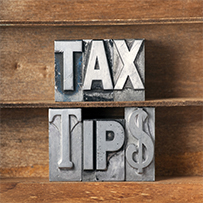
Tax Tips for the Self-Employed
Prior to tax planning, you must understand the difference between a self-employed individual and one who works full-time. You should also know that self-employed professionals do not get taxes deducted from their pay. Therefore, they have to pay taxes periodically throughout the year in the form of estimated taxes. If you want to reduce the amount of money you pay on taxes, then you need to keep track of your income and expenses and also the amount you pay as estimated taxes. Here are a few pointers that will help you plan your tax strategies.
- Strive to know more about self-employment taxes – To plan a water proof tax strategy, you need to have the proper and correct information. This will help you calculate and determine the amount you have to pay on tax every year.
- Make regular quarterly payments to avoid interest penalties – It is wise to make estimated payments to avoid penalties at the end of the tax year. This is one of the strategies you need to consider.
- Take advantage of tax deductions – There are many tax deductions that you can incorporate into your tax strategy. Some of them are office supplies, travel expense, cost of utilities and the home office tax deduction (if you are operating from home). Keep track of your expenses and get receipts for all your purchases.
- Health care expenses are deductible – Those who are new to self-employment are unaware that a portion of their health insurance premium is deductible. You qualify for tax deduction as long as the health insurance is financed by you.
- Retirement plans – Take the advice of a good financial advisor and apply for a retirement plan. A few good retirement plans include SEP, SIMPLE, IRA and 401(k) Plans.
IRS Tax Tips for Self-employed
Independent contractors and sole proprietors fall under the category of self-employment according to the IRS. Any additional part time work you undertake along with your full time job is also self employment. The IRS has lots of useful resources for the self-employed. Here are a few pointers that the IRS wants you to know about self-employment and self-employment taxes.
- All self-employed individuals will have to pay self-employment (SE) tax and income tax. The combination of Social Security and Medicare Tax makes the SE tax.
- If you are self-employed, use Form 1040 Schedule SE to compute your taxes.
- If you pay self-employment taxes, you can deduct half in figuring your adjusted gross income on page 1 of Form 1040.
- To report your profits or loss of your business, use Schedule C of the Form 1040.
- If you don’t pay your taxes quarterly, then you will end up paying a penalty at the end of the tax year. Remember, you have to make an estimated tax payment which includes the tax on your income if you are a full time employee.
- Business expenses have to be both ordinary and necessary if you want to deduct the expenses from Schedule C. The expenses that are common in your field of business are known as ordinary expenses whereas expenses appropriate to your business are known as necessary expenses.
Resources
- Quickbooks Online for Self-Employed
- IRS Small Business and Self-Employed Tax Center
- Publications and Forms for the Self-Employed
- Business and Taxes
Follow us: @the_tax_lady | TACCT on Facebook


